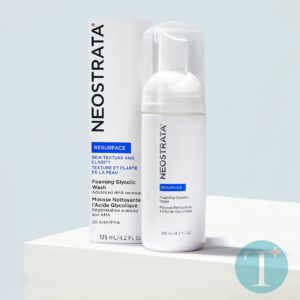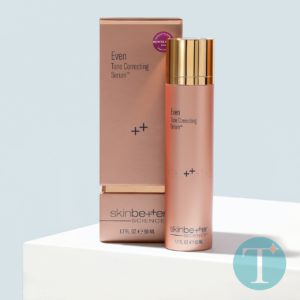- Sorry, this product cannot be purchased.
Why we recommend
This is Heliocare’s most popular product and it isn’t hard to see why once you try it. Not only does it provide the high factor protection you want from your facial sunscreen, but it isn’t heavy or sticky on your skin so it’s not a chore to wear it all-year-long (and you should).
Heliocare 360° Fluid Cream SPF 50+
Hydrating high-protection sunscreen
A lightweight broad spectrum sunscreen with both physical and chemical filters. Nicely hydrating and with an invisible finish. It is brilliant for a drier or older skin, and for use in winter when our skin tends to get a bit parched.
PRIMARY BENEFITS
- Offers all round protection against ultraviolet light and also against infrared light and High Energy blue light
- Settles down to give a dewy finish, with a light glow
- Includes a bunch of antioxidants including Fernblock (exclusive to Heliocare) which all help to defend the skin from within.
- Suitable for daily use
CATEGORY
Sunscreen
SKIN TYPE
All Skin Types
- How it Works
- Ingredients
- FAQ
Heliocare’s SPF protects your skin using a combination of physical and chemical sunscreen filters. Together, these provide broad spectrum protection against UVA and UVB rays, plus blue light and infrared. The inclusion of the brand’s trademarked Fernblock antioxidant (plus vitamins C and E and green tea extract) further guards your skin against environmental aggressors too.
HOW TO USE IT
Apply approximately two full finger lengths to the face ensuring that you apply product evenly, including up to your hairline and around your eyes. You should reapply every 2 hours during periods of high exposure, especially after sweating, swimming or towelling the skin.
Aqua; C12-15 Alkyl Benzoate; Diethylamino Hydroxybenzoyl Hexyl Benzoate; Bis-Ethylhexyloxyphenol Methoxyphenyl Triazine; Diethylhexyl Butamido Triazone; Isoamyl Laurate; PPG-15 Stearyl Ether; Hexylene Glycol; Caprylyl Methicone; Titanium Dioxide; Dipropylene Glycol Dibenzoate; Ethylhexyl Triazone; Hectorite; Trilaureth-4 Phosphate; Ceteareth-25; 3-O-Ethyl Ascorbic Acid; Polypodium leucotomos Leaf Extract; Ferulic Acid; Caffeic Acid; Glycerin; Physalis angulata Extract; Caprylyl Glycol; Melanin; PPG-15 Stearyl Ether Benzoate; Sodium Citrate; Camellia sinensis Extract; Tocopheryl Acetate; Panthenyl Triacetate; Parfum; Arginine; Hydroxypropyl Cellulose; Disodium Ethylene Dicocamide PEG-15 Disulfate; Ethylhexylglycerin; Ethyl Linoleate; Caprylic/Capric Triglyceride; Oleyl Alcohol; Acrylates/C10-30 Alkyl Acrylate Crosspolymer; Ethyl Lauroyl Arginate HCl; Citric Acid; Plankton Extract; Sorbic Acid; Xanthan Gum; Butylene Glycol; Propylene Glycol; Silica; Oxothiazolidine; Tocopherol; Lecithin; Sodium Benzoate; Phenoxyethanol; CI 77491; CI 77492; CI 77499; Linalool; Limonene.
What are the differences between physical and chemical sunscreens?
The two main categories of sunscreens are physical sunscreens and chemical sunscreens. Chemical sunscreens work by absorbing the energy from UV rays and turning it into heat instead. Physical sunscreens ‘shield’ your skin, forming a physical barrier that mainly reflects the UV rays away from the skin instead (although they do absorb some of it).
Do I really need to wear sunscreen everyday?
While you might not burn if you don’t wear sunscreen everyday, if you are serious about preventing signs of ageing, such as fine lines and hyperpigmentation, then yes, wear your SPF everyday. That’s because you are exposed to UVA light even on seemingly sunless days, which could be having an ageing effect on your complexion.
What does broad-spectrum sun protection mean?
Broad-spectrum means that a sunscreen blocks both UVA and UVB rays. That’s important because both can damage your skin, with UVB mainly responsible for burning your skin and UVA for triggering damage that causes premature skin ageing.










